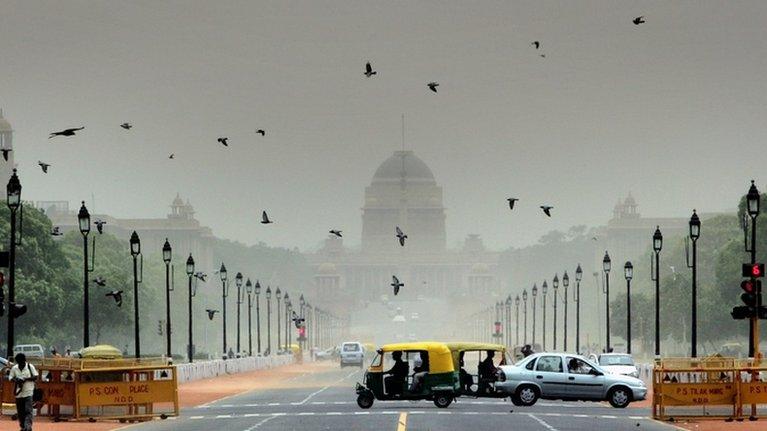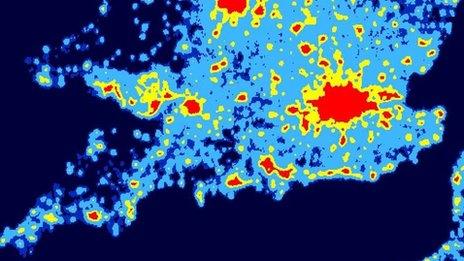Garden bird survey to assess light pollution
- Published
Clare Simm from the BTO explains why researchers have focused on light pollution's effect on garden birds
The British Trust for Ornithology is asking the public to take part in a survey to assess the effect of light and heat pollution on garden birds.
The charity is asking people to get up before sunrise (about 08:00 GMT) on Thursday 9 January, to monitor their garden bird feeders, external.
Participants should record the times at which they see up to 10 different species arrive.
This project is a follow-up to the charity's 2004 Shortest Day Survey, external.
This was a one-off survey recording the times that garden birds arrived at feeding stations in the winter.
"[Almost 6,000] people sent in records and we produced two peer-reviewed papers," said Clare Simm from the British Trust for Ornithology (BTO).
"A key finding from that survey was that urban birds get up later than their country counterparts., external"
But some studies from elsewhere in the world have suggested that street lighting might cause songbirds to become active earlier in the day, external.
So by conducting a survey before sunrise, the trust hopes that participants will produce a new record of how urban light and heat pollution might be affecting feeding patterns of UK birds on cold winter mornings.
Long, cold winter nights can be challenging for small garden birds. They need to maintain an adequate store of fat to keep warm, which requires them to "refuel" as early as possible in the morning.
"This can be seen in a peak of feeding early in the morning by a wide range of species, which is especially evident in our gardens," the BTO said.
"Around half of all British householders are thought to feed their birds, providing an important resource when food is scarce in the wider countryside.
"This gives us a chance to understand how the nature of the surrounding habitat can affect the feeding behaviour of birds."
The RSPB told BBC News that it was vital for the British public to take part in wildlife surveys such as this one.
"As well as helping the conservation organisations, taking part in surveys like these gets people enthused about nature and reaping the rewards of their feeding and wildlife gardening efforts.
"And it proves to them that you don't have to be an expert or have a huge garden to attract wildlife to your garden and enjoy seeing different creatures."
- Published11 March 2013

- Published11 April 2012
